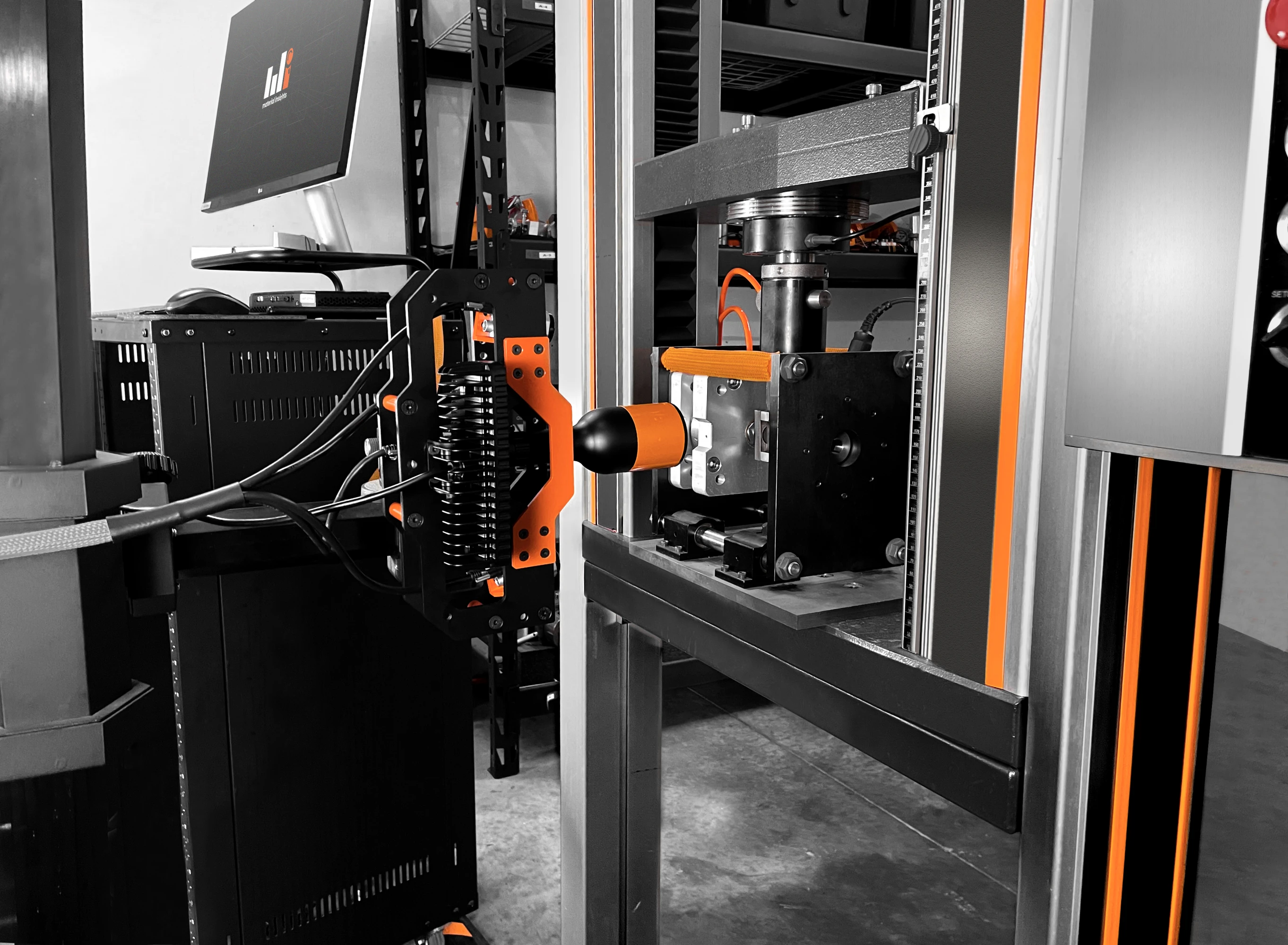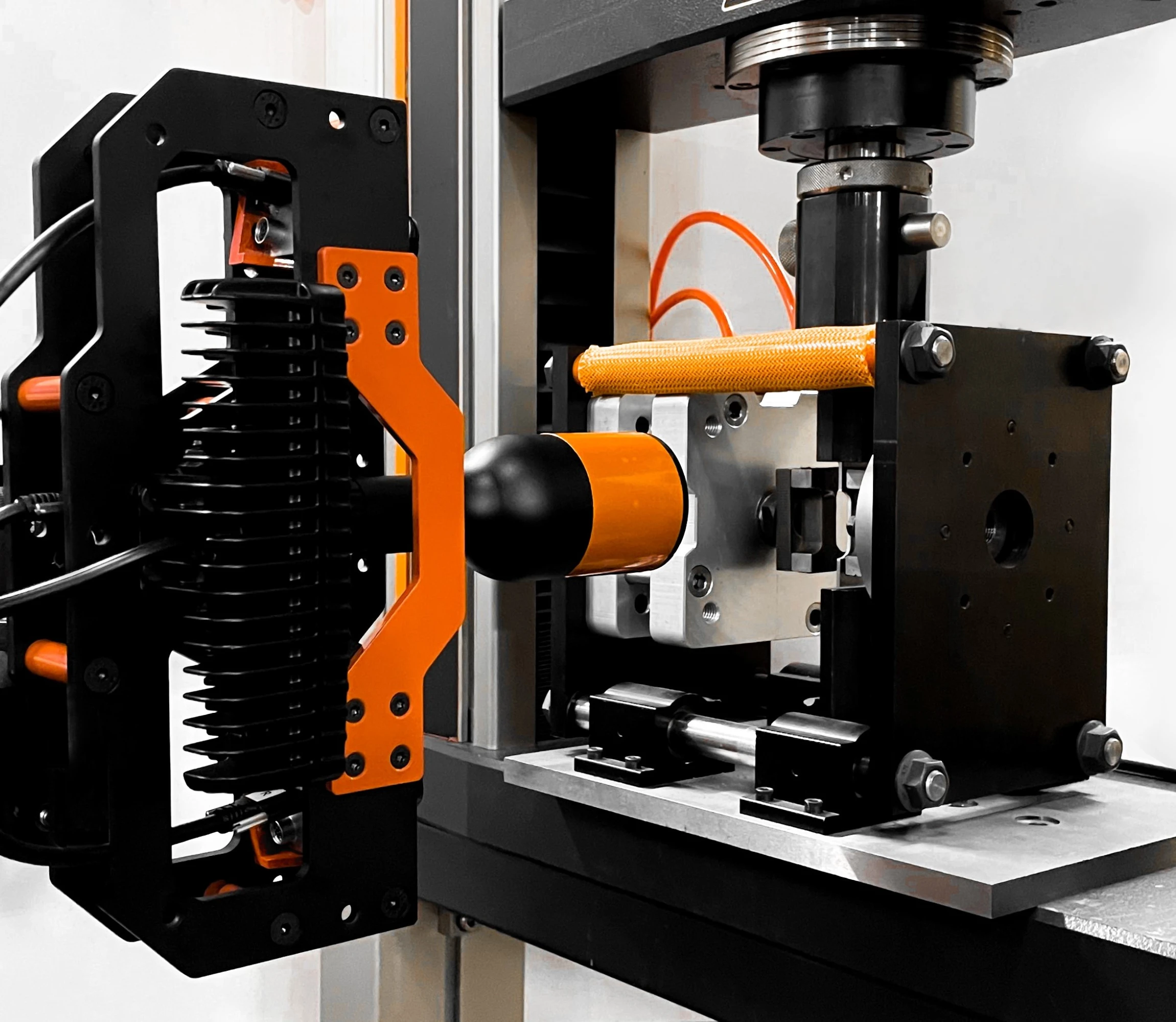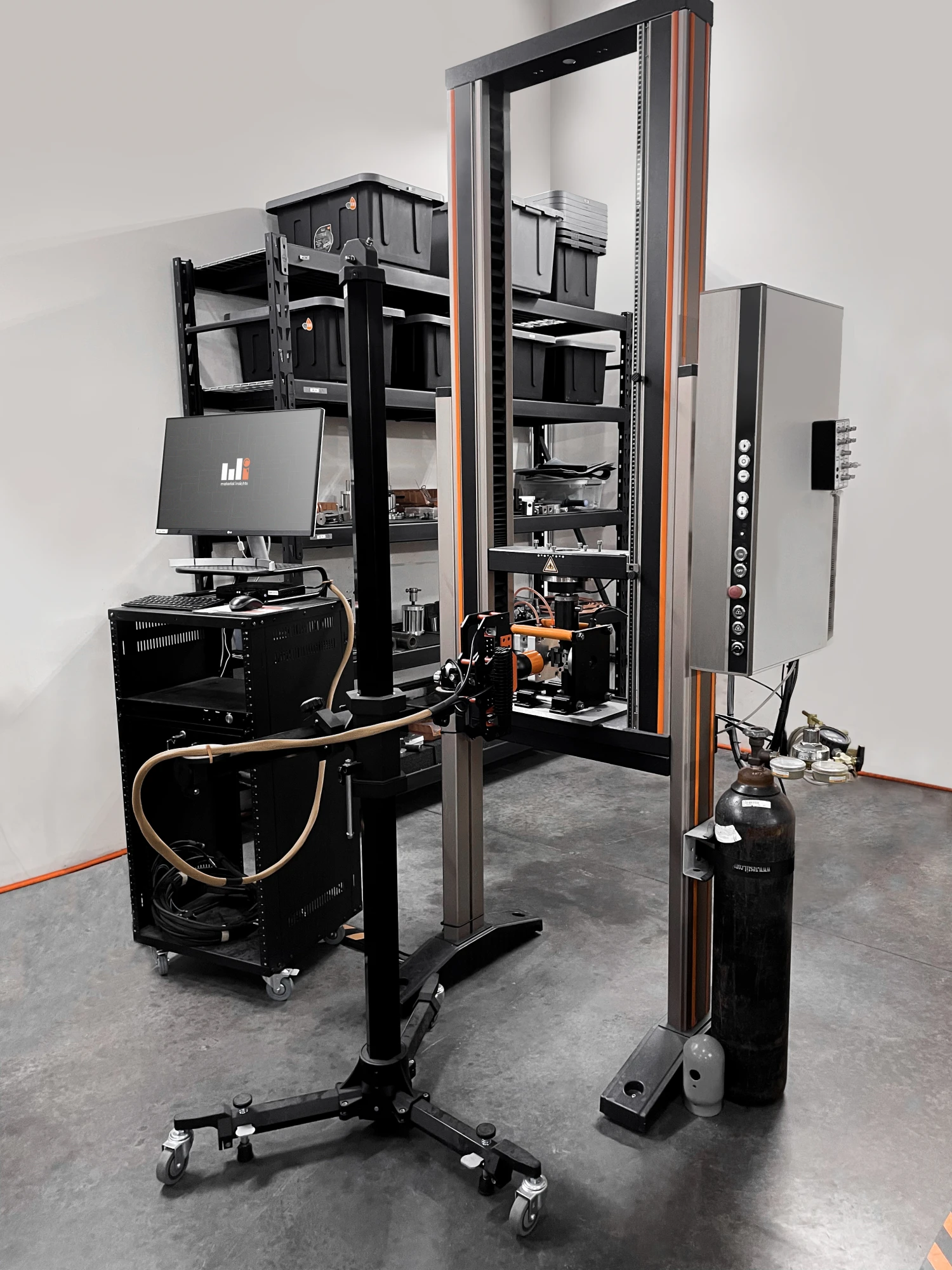Cyclic Tension/Compression Testing Setup
This is an integrated setup centered around an “Anti-Buckling Device” designed to enable monotonic compression and cyclic tension/compression testing of “sheet metals”; this is to facilitate generating the data needed for characterizing material anisotropy, tension/compression asymmetry & revealing Bauschinger effects in the material. The setup encompasses both mechanical components, sensors, as well as a high resolution DIC system, and it can be adapted to most modern universal load frames (both mechanically and electronically). The data generated from this integrated setup is used for calibrating complex “Springback” predictive models.
General Specifications:
- Adaptability: Most universal load frames (20kN or higher) with modern electronics and an I/O card (INSTRON, ZwickRoell)
- Force Limit: 20kN
- Max Test Speed: ~1 mm/s
- Testing Directions: Tension & Compression
- Gripping:
- Manual: 20kN
Features:
- Self-centering design to accommodate sheet samples with different thicknesses (As low as 0.8mm)
- Dedicated side loading force sensor for independent load monitoring, as well as closed-loop control* to maintain near constant anti-buckling forces during testing
- Can be configured with manual pneumatic supply or electronically controlled pneumatic supply for closed-loop control
- Fully integrated with mi-Sensor in a special high resolution DIC camera configuration (& Telecentric Lens) for CTC testing, operating in both ex-situ and in-situ (real-time) modes
- DIC is configured for side sample monitoring to enable complete tracking of strains along the test sample
- Can achieve large compressive plastics strains (~10%)
- Small frictional forces with the ability to measure them for correction
- Can be used at higher-than-ambient-temperatures (up to ~250 ˚C)
Examples of Tests (for Light Metals and High Strength Steel Sheets):
- Monotonic sheet compression tests
- Cyclic tension followed by compression tests
- Cyclic compression followed by tension tests
- Load/unload sheet compression tests
Applications:
- Obtaining the compressive mechanical properties of the material
- Characterization of the Bauschinger effects in the material
- Characterizing tension/compression asymmetry in the material
- Calibration of “Springback” predictive models (including complex kinematic hardening models)
CTC Setup in Use:

 Cyclic Tension Compression Testing setup with mi-Sensor
Cyclic Tension Compression Testing setup with mi-Sensor
 mi-Sensor in a CTC configuration
mi-Sensor in a CTC configuration
 Cyclic Tension Compression Testing setup with mi-Sensor
Cyclic Tension Compression Testing setup with mi-Sensor